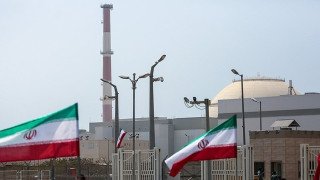As the continent commemorated the International Day of the African Child on June 16, 2025, governments were urged to reflect on the progress and shortfalls since the adoption of child-focused budgeting and policies in 2010.
This year’s theme, “Planning and Budgeting for the Rights of the Child: Progress since 2010”, called on African leaders to account for their commitments to children’s rights under the African Charter on the Rights and Welfare of the Child, which was adopted by the Organisation of African Unity (OAU) before transitioning into the African Union (AU).
The commemorative day is rooted in the 1976 Soweto Uprising, where hundreds of Black South African students were killed by apartheid police for protesting against being taught in Afrikaans. The tragedy galvanized the international community to elevate the cause of African children.
Has Child Budgeting Made a Difference?
In 2010, the African Committee of Experts on the Rights and Welfare of the Child (ACERWC) published guiding frameworks on child-sensitive planning and budgeting. However, many experts now argue that while progress has been made, particularly in access to education, the actual funding remains insufficient. A report by UNICEF Africa shows that millions of African children continue to face extreme poverty, lack of health care, and exposure to violence.
Also Read; Netanyahu Appeals To Iranians Amid Rising Conflict
In Nigeria, South Sudan, and Burkina Faso, violent conflict has disrupted access to schools and hospitals, further complicating efforts to implement rights-based budgeting. Meanwhile, Tanzania has made strides through free primary education policies, but challenges remain in teacher training, overcrowding, and school infrastructure.
Children Voice Their Demands
From Kigali to Lagos, this year’s events featured children themselves taking center stage. In Kenya, youth-led organizations hosted roundtables with lawmakers, urging reforms in juvenile justice and stronger protection from gender-based violence.
In Zambia, children delivered petitions to Parliament calling for expanded access to menstrual hygiene products and safe spaces in schools. Regional think tanks like Save the Children and Plan International facilitated youth parliaments to simulate budget discussions and child protection strategies.
A Way Forward Through Agenda 2063
The African Union has tied child development directly to Agenda 2063, its strategic framework for inclusive growth and sustainable development. With Africa expected to host nearly 40% of the global child population by 2055 (source), experts argue that real investments in child education, nutrition, and digital access are not just moral imperatives—but economic ones.
The Global Partnership to End Violence Against Children has also urged African countries to increase budget transparency and track expenditures targeting child welfare.
This year’s Day of the African Child is more than a commemoration—it’s a rallying cry. As the continent reflects on the past 15 years of promises, the message from children is clear: Respect our rights. Budget for our future. Act now.







